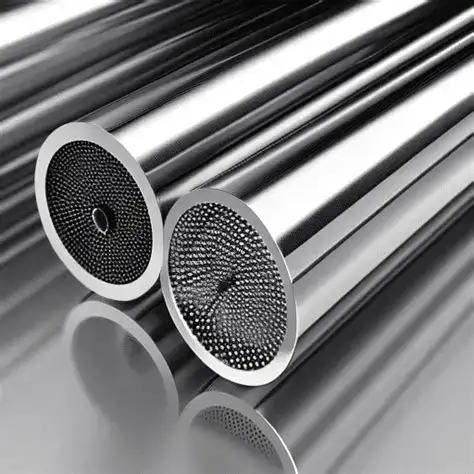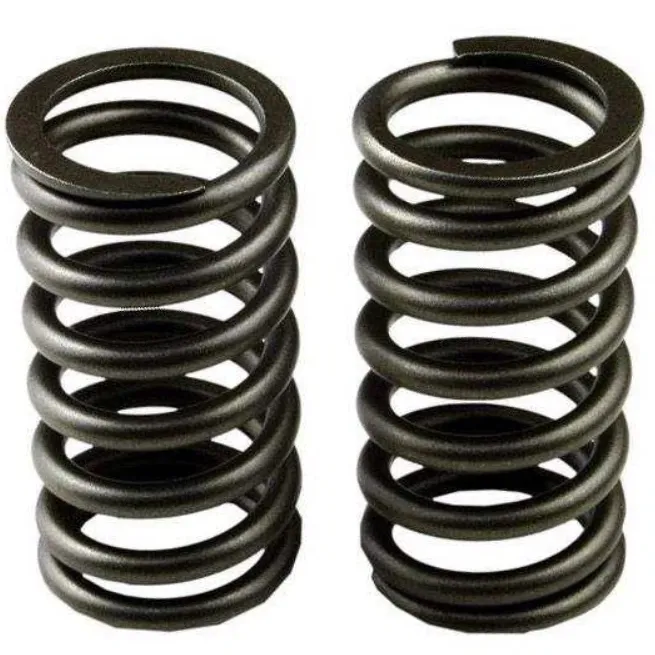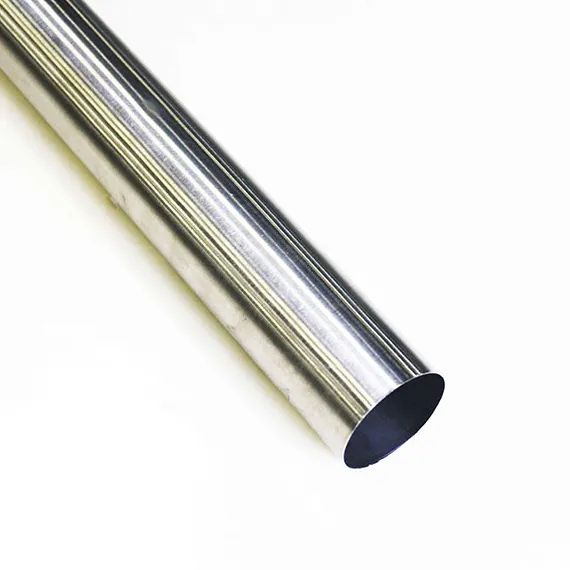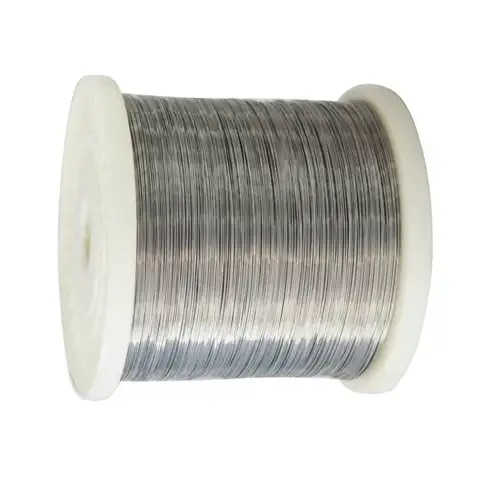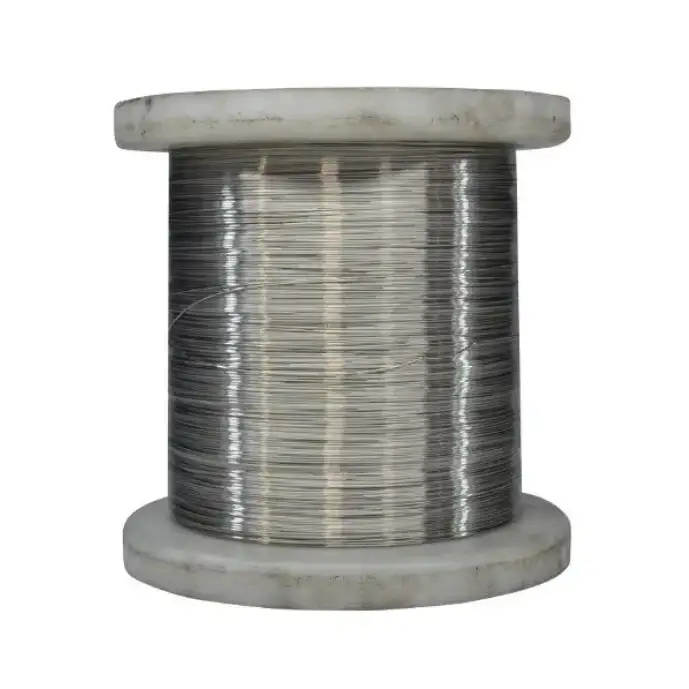Inconel Alloy 718 (UNS N07718) is a precipitation‑hardening nickel-based alloy with ~50–55% Ni, 17–21% Cr, 4.75–5.5% Nb+Ta, 2.8–3.3% Mo, and trace Ti & Al. These elements form two key strengthening phases, γ′ and γ″, delivering outstanding mechanical performance.
comprehensive specification
| Category | Property | Value / Description | Notes |
|---|---|---|---|
| Chemical Composition | Nickel (Ni) | 50.0–55.0% | Base element |
| Chromium (Cr) | 17.0–21.0% | Oxidation/corrosion resistance | |
| Iron (Fe) | Balance | ||
| Niobium (Nb) + Tantalum (Ta) | 4.75–5.50% | Primary strengthening (forms γ″ precipitates) | |
| Molybdenum (Mo) | 2.80–3.30% | Solid-solution strengthening | |
| Titanium (Ti) | 0.65–1.15% | Forms γ′ precipitates | |
| Aluminum (Al) | 0.20–0.80% | ||
| Carbon (C) | ≤0.08% | ||
| Manganese (Mn) | ≤0.35% | ||
| Silicon (Si) | ≤0.35% | ||
| Sulfur (S) | ≤0.015% | ||
| Copper (Cu) | ≤0.30% | ||
| Physical Properties | Density | 8.19–8.24 g/cm³ | |
| Melting Range | 1260–1340°C | ||
| Thermal Conductivity (RT) | 11.2–14.7 W/m·K | Increases with temperature | |
| Coefficient of Thermal Expansion (20–100°C) | 11.8–13.9 μm/m·°C | ||
| Elastic Modulus (RT) | 199–214 GPa | ||
| Electrical Resistivity | 1.18–1.25 μΩ·m | ||
| Mechanical Properties (RT, Annealed) | Tensile Strength (UTS) | ≥965 MPa | Minimum specified |
| Yield Strength (0.2% Offset) | ≥550 MPa | ||
| Elongation (A5) | ≥30% | ||
| Hardness | ≤363 HB (Brinell) / HRC 36–42 | Typical range | |
| Elevated-Temperature Performance | Yield Strength (650°C) | ≥620 MPa | Precipitation-hardened state |
| Stress Rupture Strength (650°C, 1000h) | ~70 MPa | ||
| Short-Term Service Limit | 800°C | Oxidation resistance up to 1000°C | |
| Long-Term Service Limit | -253°C to 650°C | ||
| Heat Treatment | Solution Treatment | 955–1020°C, rapid cool (water/air) | Dissolves secondary phases |
| Precipitation Hardening (Aging) | 718–760°C for 8–16h, air cool | Optimizes γ″/γ′ precipitates | |
| Key Characteristics | Corrosion Resistance | Excellent resistance to oxidation, pitting, stress corrosion cracking (SCC) in chlorides/sulfides; performs well in acidic/nuclear environments | |
| Weldability | Excellent (TIG, electron beam, resistance welding) | Low post-weld cracking risk | |
| Machinability | Challenging (requires carbide tools, low cutting speeds) | High work-hardening rate | |
| International Standards | Bar/Rod | ASTM B637, AMS 5662/5663/5664 | |
| Sheet/Strip | ASTM B670, AMS 5596 | ||
| Forgings | ASTM B564, AMS 5662 | ||
| Tubing | AMS 5589/5590 | ||
| Applications | Aerospace | Turbine blades, combustion chambers, fasteners | |
| Nuclear | Reactor core components, fuel assemblies | ||
| Oil & Gas | Downhole tools, valves, pumps (NACE MR0175 compliant) |
Notes on Variability & Testing
-
Condition Dependency: Mechanical properties (especially strength/ductility) vary with product form (bar, sheet, forging) and heat treatment (annealed vs. aged). Values listed are minimums for annealed material unless specified.
-
High-Temperature Data: Strength decreases above 650°C; stress rupture values are typical for precipitation-hardened material.
-
Testing Standards:
-
Tensile: ASTM E8
-
Hardness: ASTM E10 (Brinell), E18 (Rockwell)
-
Creep: ASTM E139
-
-
Nuclear/Grade Variants: Tighter compositional controls (e.g., low Co, B) for nuclear applications (ASTM B637 Grade SB-637N).
global price comparison
| Form | Region | Price Range (USD/kg) | Source / Notes |
|---|---|---|---|
| Plate/Sheet | China | $36–40/kg | Inconel 718 plate, MOQ 50 kg |
| India | ≈$35.6/kg (~₹2,698) | Plate (2.5 mm): ₹2,698 (USD 35.55) | ||
| UAE | $40–50/kg (FOB Mumbai) | Sheet/plate/coil prices | ||
| Bar/Rod | China | $20–35/kg | Round bar, MOQ 10 kg | |
| UAE | $40–55/kg | Bar price range | ||
| Coil/Strip | China | $22–28/kg | Coil/strip/bar price | |
| Wire | China | $11.2–45/kg | Spring wire $30–45/kg; some at $11.23–17.41/kg | |
| Global | $20–50/kg | Welding wire 718, MOQ ~20 kg |
📌 Key Observations
-
Plate/Sheet prices typically range from $36–40/kg in China, $35.6/kg in India, with lower FOB offers (as low as $10/kg) on small batches from Indian suppliers.
-
Bar/Rod pricing varies more: $16–35/kg, influenced by order size and finish quality.
-
Coil/Strip is priced around $22–28/kg from Chinese suppliers.
-
Wire shows the widest range: from $11.2/kg (bulk spring wire) up to $45/kg (small-lot welding wire).
Why Choose Alloy 718?
It offers a rare mix of high tensile/creep strength and corrosion resistance. The age-hardening mechanism grants robust mechanical performance, while its weldability and stability across cryogenic to high temperatures make it uniquely versatile.
Manufacturing & Forming Alloy 718
Works well in casting, forging, machining, cold- and hot-forming. Heat treatment involves either:
-
Solution‑anneal @1,700–1,850 °F, age @1,325 °F for 8 h + 1,150 °F for 10–18 h.
-
High‑temp variant: 1,900–1,950 °F anneal, age @1,400 °F for 10 h + 1,200 °F for 20 h .
Comparison with Similar Alloys
| Property | Alloy 718 | Inconel Alloy 625 | Inconel Alloy X‑750 |
|---|---|---|---|
| Yield @ RT | ≈ 1,380 MPa | ≈ 550 MPa | ≈ 1,290 MPa |
| Creep Resistance | Up to 700 °C | Up to 982 °C | Up to 800 °C |
| Welding Ease | Excellent | Excellent | Requires aging |
| Corrosion Resistance | Excellent | Excellent | Very good |
Welding Practices
Weld using Ni-based filler (e.g., ERNiCr-3). Preheat ~150–200 °C, interpass ≤300 °C, followed by full solution + aging to restore properties. Crack resistance is excellent due to slower precipitation response.
FAQs
1. What heat treatment does Inconel 718 require for optimal strength?
Inconel 718 is strengthened through a two-step aging process following solution annealing. Typically, the alloy is solution-treated between 1,700–1,850 °F, then aged at ~1,325 °F for 8 hours, followed by ~1,150 °F for 10–18 hours. This develops the γ′ and γ″ precipitates that provide high tensile and creep strength up to ~700 °C.
2. Can Alloy 718 be welded without losing mechanical performance?
Yes, it can. Inconel 718 is well-known for its excellent weldability. Gas-tungsten arc welding (GTAW) and gas-metal arc welding (GMAW) with appropriate nickel-based filler metals (e.g., ERNiCr-3) are recommended. A full post-weld age treatment is essential to restore precipitation-hardened properties and minimize microstructural anomalies .
3. What is the maximum service temperature and environmental resistance of Inconel 718?
Inconel 718 maintains both tensile and creep strength up to ~700 °C (1,300 °F) and resists oxidation in even higher temperature zones. It also performs well in corrosive and chloride-laden environments, making it suitable for marine, oil, gas, and steam applications.
4. How does machining or welding affect its fatigue life?
Welded Inconel 718 exhibits reduced fatigue life—up to 30% less in high-cycle fatigue and >50% in low-cycle conditions—compared to parent material. Common microscopic causes include residual stress, Laves-phase segregation, and heat-affected zones. Despite this, properly post-weld heat-treated components maintain adequate lifecycle performance for critical applications.
5. Is Inconel 718 non-magnetic?
Yes. Inconel 718 is non-magnetic in both annealed and precipitation-hardened conditions, which is critical for applications where magnetic neutrality is required, such as in aerospace instrumentation and cryogenic components.

